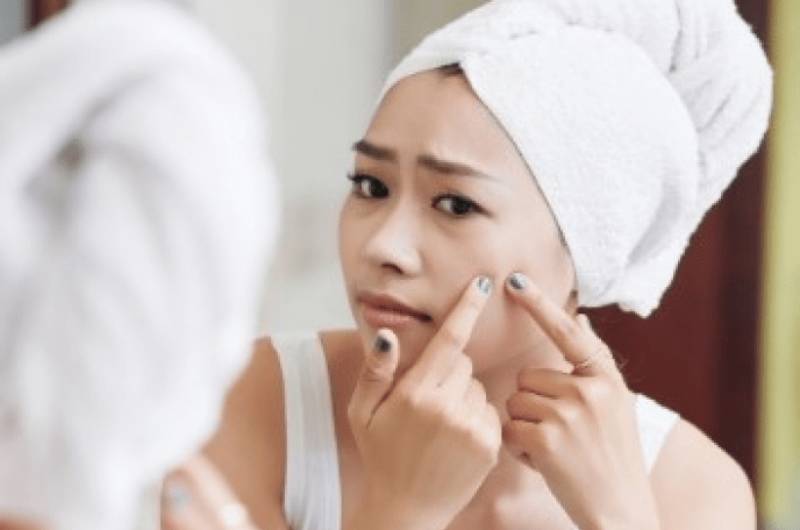
Types of Acne in Singapore: Learn How to Differentiate Between Them
Acne is a problem that many people of different ages experience worldwide and Singapore is no exception. The humid climate of Singapore further aggravates acne to be a persistent pain point for teenagers and adults alike. Heat, sweat, and oil clog the pores causing you to have recurrences, particularly those pesky T-zone breakouts.
The causes and nature of all the varieties of acne are individual, and what is beneficial to one may be detrimental to another.
The guide below explains the causes, signs, and treatment suggestions of the several categories of acne as recommended by skin physicians. Let us help you in providing an explanation of the different kinds of acne and selecting the right choice of treatment.
What triggers the formation of acne?
Acne is caused when the skin’s sebaceous glands start secreting excess oil, or sebum. When oils mix with dead skin cells, the pores are blocked. The trapped pores, or comedones, create the perfect environment for the growth of the bacterial organism Cutibacterium acnes, resulting in redness, inflammation, and pus.
Hormonal changes, irrespective of whether it is at the onset of puberty, menstruation, pregnancy, or due to stress, increase the production of oil. This elevated production creates the risk of an outbreak.
In addition to hormones, the warm and damp environment of Singapore also contributes. Singapore has a high-humidity climate and temperatures are usually above 30 degrees protractedly. The weather increases sweating and oil production while the polluted particles inflame the skin, causing pores to clog and leading to breakouts.
6 Main Acne Types and How to Recognize Them
Knowing acne types is the very first thing that is absolutely vital to the proper treatment, for different type of acne must be treated differently.
Listed below are the six most frequent types of acne on face and the body, with identifying traits and distinguishing features.
Blackheads
Blackheads are tiny, non-inflammatory pimples, marked by a black color, found as minuscule dots all over the skin surface. The dark look represents the debris of the skin and the oxidized sebum that result when the air’s oxygen mixes with it.
The flat blackheads aren’t typically sensitive and because the hole is exposed, the treatment of choice is exfoliation or a gentle facial to clean out the debris and close the pores.
Whiteheads
Whiteheads are tiny, closed comedones that simply reside over the skin and don’t rupture when the pore becomes blocked. Oil and dead skin get trapped inside. Frequent cleansing and exfoliation as recommended by a dermatologist can help whiteheads not to escalate to inflammatory acne.
Papules
Papules are small, soft, red, inflamed bumps that are caused by the rupture of an impacted pore just under the skin’s surface, leading to inflammation. This type of acne signals more intense inflammation.
Popping or squeezing them causes added irritation as well as the potential for scarring. Popping a papule is typically followed by increased swelling by the next day.
This common misconception highlights the reason for the avoidance of contact to reduce added skin damage.
Pustules
Pustules look like papules, except they have pus that’s noticeable. They’re red at the base with a white or yellowish center and are soft to the touch. This acne type needs special care under the supervision of doctors because bacteria can spread through contact and can also result in dark spots or scars.
Nodules
Nodular acne presents as big, inflamed, and solid bumps that can develop deep in the skin. Nodules indicate deep inflammation and do not have an external head. These can cause scarring if not treated and are often not responsive to over-the-counter medication or treatment. Instead, they require prescription strength medication or a procedure by a skin specialist.
Cystic Acne
Cystic acne comes about when there’s infection deep in the pore, so that it inflames and forms painful cysts that take weeks to heal. This type of acne is most common in adults or in people with hormone problems. Occasionally, it requires oral treatment or laser treatment by a skin specialist.
Identifying the nature of the acne leads to the selection of the best treatment to use. In the case of blackheads and whiteheads, superficial topical ointments are good enough, while severe types like cysts need oral medication or procedures. These can involve local, oral, or office procedures, depending on the severity of the case.
The knowledge of the nature of the acne ensures best long-term safety and effectiveness care.
How to Identify Your Type of Acne
One can distinguish whether a lesion is an acne lesion based on its coloration, the level of pain, if it is purulent (filled with pus), and how deeply the acne lesion has evolved into the skin.
Less severe types of acne are blackheads and whiteheads. These minuscule, shallow lesions usually result in little or no inflammation. Moderate acne includes painful, reddish papules, nodular lesions, and pus-filled pustules. These lesions show evidence of more profound inflammation.
Severe acne includes painful cysts and nodular lesions that occur at deeper levels of the skin and tend to last longer in the majority of patients. Sore, swollen, or scabbing acne lesions that creates hyperpigmented spots may mean more than simply moderate acne and are more concerning.
For accurate diagnosis, dermatologists in Singapore suggest taking an individualized assessment approach.
Common Acne Triggers in Singapore
- The primary cause of acne in Singapore remains sebaceous gland hyper-activity and blocked follicles. When there is bacteria buildup and inflammation, the acne condition can further worsen.
- In the tropical and humid climate in Singapore, oil and sweat mixed with dead skin and built up in pores is a common precondition for breakouts. The risk of sweat and bacteria building up in underneath either a humid or airless environment exacerbates this scenario.
- What we eat comes into play as well. Foods that are high in sugar, fried or have a lot of lactose can inflame breakout-prone areas and induce breakouts.
- Stress, lack of sleep, and hormonal shifts all connect here, too, as these result in an over-stimulation of the production of oils and inhibit the pores’ natural healing process.
- Besides that, the use of heavy makeup, heavy skin protection, or poor skin care also clogs and closes the pores.
To help relieve these causes, wash your face twice daily with a gentle, non-clogging foaming face cleanser, and use oil-free products formulated for the tropical climate of Singapore.
Dermatologists promote daily, day-to-day rituals as a prevention strategy to prevent breakouts.
When to Consult a Dermatologist
Suppose you found yourself dealing with recurring breakouts despite rendering your over-the-counter products for over two months. In that case, it is perhaps time for you to consult with a dermatologist.
Repeat occurrences of scarring, nodules, or cysts signify that your acne is indeed more severe and that the expertise of a dermatologist is needed. With the warm, wet weather that is present for the whole year-round in the city-state of Singapore, acne tends to grow if not treated early and fast.
An aesthetic or medical practitioner can determine the type of your acne and suggest an evidence-based treatment to suit your skin type. Treatments for clinical acne in Singapore also use traditional healing to mitigate scarring, pigmentation, and injury, and improve the function of the skin’s healing and restorative qualities.
In Singapore, your dermatologist personalises your treatment to your unique skin to offer a safe, evidence-based treatment with minimal risk for scarring and pigmentation.
Scheduling an appointment with your doctor at the earliest opportunity can prevent unnecessary suffering and lasting damage, leading you to clear, healthy skin. If your acne is affecting your confidence or your comfort, schedule a visit at Aeon Medical and Aesthetic Clinic.
Treatment for Different Categories of Acne
For whiteheads and blackheads that are minor, topical prescriptions are an option, such as retinoids, salicylic acid, azelaic acid, or benzoyl peroxide. Facials, comedone extraction, and superficial chemical peels can minimize pore size and the production of oils.
For localized, moderate acne with papules and pustules, skin specialists prescribe topical or oral antibiotics to minimize the bacteria and resulting redness. Light or laser procedures may also help diminish the amount of bacteria and redness and improve pigmentation.
Profound or severe forms of acne, however, such as nodules and cysts, will very likely require the use of oral medications, including isotretinoin, to minimize the production of oils and scarring.
You can treat large bumpy lumps with a corticosteroid injection. For women in whom the eruption is hormonal, hormonal treatment may be an option.
These lines serve to correlate the extent and nature of the acne with the optimal treatment program.
Laser treatment for acne works with special wavelengths of light that are designed to reduce inflammation, decrease the production of the natural oils in the skin, and facilitate healing—all without harming healthy surrounding skin.
Tackle Your Acne In Singapore With The Best Possible Approach
The effectiveness of acne treatment largely depends on identifying the specific type of acne you’re dealing with. From mild comedonal acne to more severe cystic breakouts, understanding your skin condition is the first step toward effective care.
With an accurate diagnosis, you can receive safe and targeted treatment tailored to your skin’s needs. In Singapore, many residents achieve clearer skin through dermatologist-supervised therapies designed to both treat existing acne and prevent future breakouts.
If your acne continues to interfere with your comfort or feeling of self-worth, please speak with a medical professional to understand your skin and create a safe acne treatment plan just for you.
Frequently Asked Questions
What is the most typical presentation of acne in Singapore?
In Singapore, the most prevalent form of acne is acne vulgaris, a condition that includes whiteheads, blackheads, zits, and cysts. The typical offenders for both adults and teenagers are overactive oil glands, along with the relentless heat and humidity.
Can hormonal acne be treated?
Hormonal acne, while inevitable, can most assuredly stay in reasonable control. Treatment can include over-the-counter or prescription medications along with a good skincare routine and lifestyle changes, to keep it under control.
Does the weather in Singapore aggravates acne?
The tropical Singaporean climate is very hot and humid, which can trigger the secretion of sweat and oil. This leads to clogged pores, which can lead to more spots, mainly on the back and the face.
Is it safe to treat acne scars with laser?
Laser procedures are indeed safe with qualified practitioners. They can minimize the coloration and the size of scars. Still, everyone will respond differently with the scarring type and the scarring severity.
How long will it take to clear the acne?
Recovery may take a few weeks to months after treating persistent acne through different treatment options. However, the time it takes for acne to clear depends on each individual case and the kind of treatment being administered.
If you are unsure of what type of acne you have, please make a professional appointment to determine the type and develop a treatment plan that is right for your skin type.
